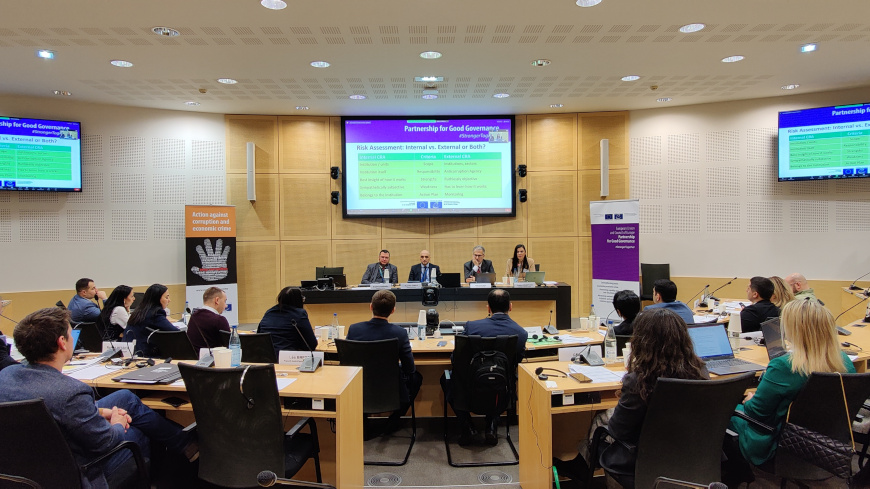The Eastern Partnership countries have advanced substantially in regulating corruption risk assessment and management processes by designing internal tools and legislative frameworks. Though some countries use more advanced tools and have established clear mandates in this field, others have started to improve this process as a result of legislative framework development and recent institutional set-ups.
A workshop bringing together practitioners from anti-corruption and policy making institutions from Azerbaijan, Armenia, Georgia, the Republic of Moldova and Ukraine, contributed to sharing good comparative practices related to identifying and assessing corruption risks in the public and private sector, as well as present the Council of Europe’s approach to national corruption risk assessment. This event aimed at strengthening cooperation in the Eastern Partnership region, by allowing participating jurisdictions to share experiences regarding their own institutional or external corruption risk assessment practices and discuss provisions of the legislative/regulatory frameworks. Furthermore, apart from discussing corruption risk assessment in the public sector expert interventions addressed the need for nuanced regulations to incentivises private sector to strengthen compliance with anti-corruption and integrity rules.
By raising awareness on new solutions and innovations developed in the field of combating and preventing economic crime, offering policy recommendations, and providing a framework for cooperation and exchange of experience between countries, the Partnership for Good Governance will continue to provide support in the Eastern Partnership region.
This event is part of the European Union and the Council of Europe joint programme “Partnership for Good Governance”, co-funded by the European Union and the Council of Europe, and implemented by the Council of Europe, in the framework of the regional project on “Strengthening measures to prevent and combat economic crime in the Eastern Partnership region”.





